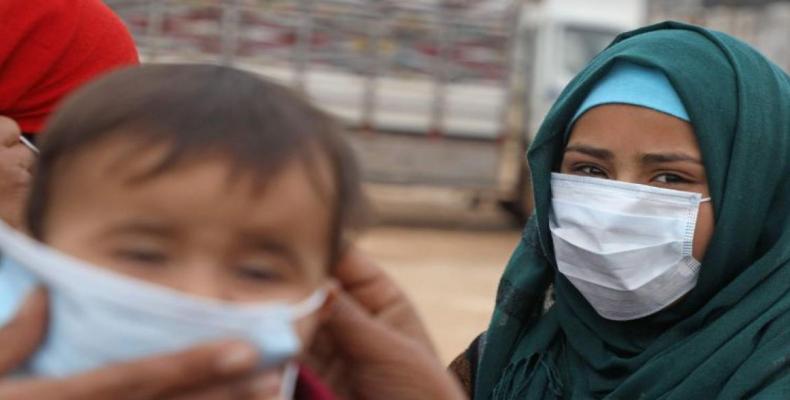UN humanitarian coordinator in Yemen, Lise Grande, has said that this population is once again on the brink of famine, and there are not enough resources to help them amid the pandemic of COVID-19 that affects most of the planet.
More than 24 million Yemenis depend on the international humanitarian assistance to survive, after more than five years of bloody war imposed by a coalition led by Saudi Arabia and supported by the United States that has destroyed almost all of the country's infrastructure.
The conflict broke out after the armed Houthi rebels forced President Abd-Rabbu Mansour Hadi to flee the country and take refuge in Riyadh, the Saudi capital.
Heavy shelling had almost all public services collapsed, including health and education systems; tens of thousands of houses were reduced to rubble, forcing its owners to settle in precarious camps, where they suffer from hunger and disease.
The Houthi authorities currently recognize 1,290 cases of COVID-19 and 345 deaths, however, some international organizations believe that these figures are only a small fragment of the actual situation. The main problem is that proper conditions don't exist to carry out an effective investigation.
There are not enough diagnostic tests either or protective equipment for the population or the health personnel. And the few places that do work lack the necessary oxygen to take care of the infected patients who, by the way, arrive to the hospital in unfavorable conditions with few opportunities to be saved.
Jens Laerke, spokesman for the U.N. Office for the Coordination of Humanitarian Affairs (OCHA), said in a Geneva briefing that Yemen is on the brink.
This week the United Nations International Children's Fund managed to deliver 18 tons of supplies, which actually represents a mere drop in the ocean. Lise Grande remarked that in a virtual donor conference, they were hardly able to raise 1.2 billion dollars, half of what is needed, and so far only nine out of the 31 donors who promised their assistance had funds delivered, which poses a serious problem to provide food, water and medicine.
Yemen has long experienced a humanitarian tragedy due to wars, epidemics of cholera, measles and dysentery.
Now the COVID-19 pandemic comes to join this silent drama, which does not provoke any reaction in the international community, not only because their attention is focused on the disease, but because of the selfishness that prevails in many rich countries around the world.


